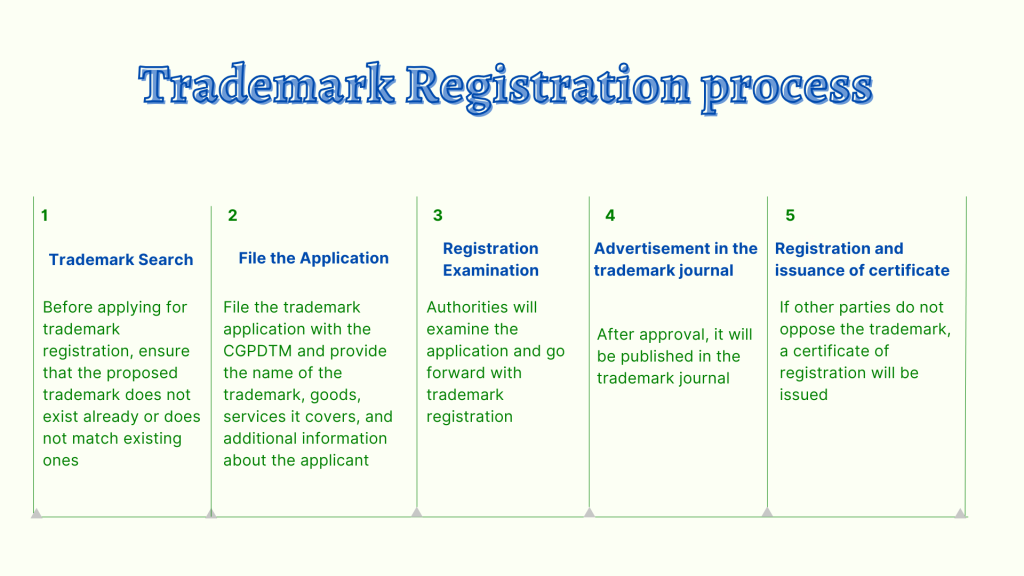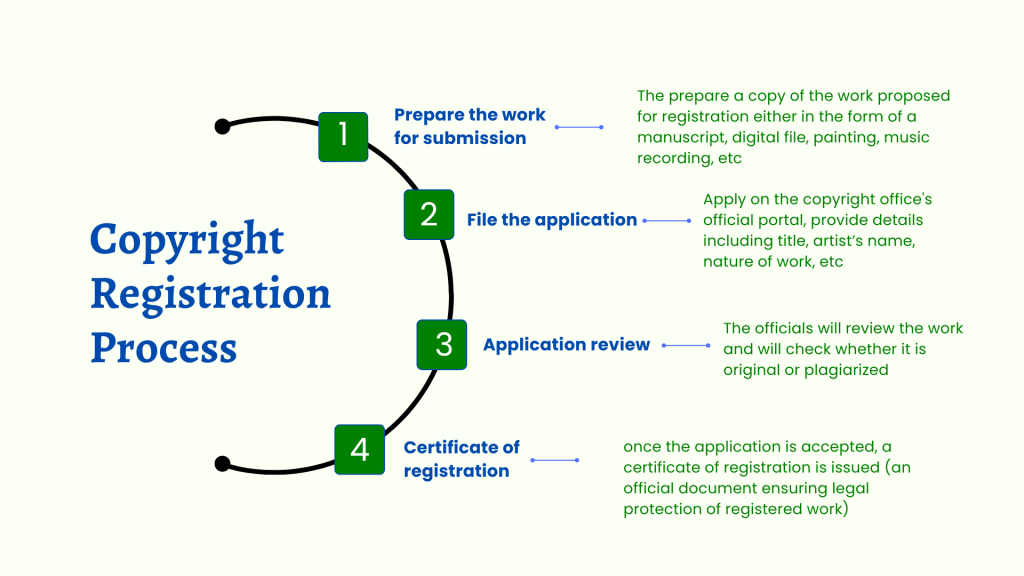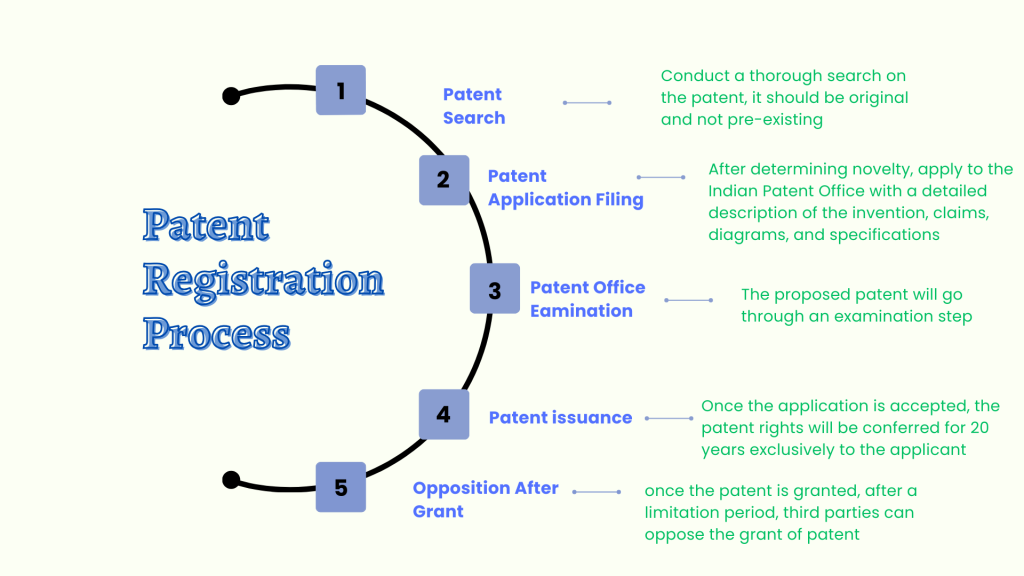Trademark, Copyright, and Patent Registration
Home » Trademark, Copyright, & Patent Registrations
Trademark, Copyright, and Patent Registration: A Complete Guide
In today’s scenario, business houses and individuals must make sure that their intellectual property is safeguarded to hold an exclusive position in the market and prevent any form of innovation for others to use. Intellectual Property Rights (IPR) allow creators, inventors, and companies to have rights over their creations, innovations, ideas, and branded attributes. Among the essential forms of intellectual property protection are trademarks, copyrights, and patents. Each of these protections serves different purposes but are all vital to the assurance that creators and businesses can protect their work, benefit from it, and prevent anyone else from making use of it.
This post explores the processes, benefits, and importance of trademark, copyright, and patent registrations. This article will explain each of the concepts individually, how they differ from one another, and describe the step-by-step registration processes in India
What is a Trademark?
A trademark is any sign, symbol, word, phrase, logo, or combination thereof that identifies and distinguishes the goods or services of one business from those of others. Trademarks may be in the form of brand names, logos, slogans, or even sounds or colors that are recognizable to a specific product. The primary purpose of a trademark is to protect the reputation and identity of a brand, ensuring that consumers can identify and trust the origin of the products or services they purchase.
Trademark Registration provides the owner with a privilege to obtain legal rights so that they can restrict others from using marks which could cause confusion in the minds of consumers. In addition, registered trademarks offer legal protection against infringement, allowing the trademark owner to sue for its mark if another party uses their mark without permission.
Importance of Trademark Registration
Trademark registration is one step that every business or individual needs to take to protect their brand identity. The following are the key benefits associated with registering a trademark:
- Exclusive Rights: A registered trademark grants the owner exclusive rights to use the mark in respect of the goods or services for which it is registered.
- Brand Protection: A trademark registration helps protect the uniqueness of a brand and prevents others from using similar marks that might dilute the reputation of the brand.
- Legal Implications: A registered trademark also provides legal recourse in case of an infringement. A right is given to a valid owner to sue for damages and seek an injunction against the unauthorized use of the mark.
- Asset Value: A registered trademark can add value to a business. It is an intangible asset that can be licensed or sold, generating income for the owner.
- Consumer Trust: A trademark acts as a symbol of quality and origin, fostering trust and loyalty among consumers.

Trademark Registration Process in India
To trademark a product in India, an applicant must follow the process endorsed by the Controller General of Patents, Designs, and Trademarks (CGPDTM). The following steps outline the process:
- Trademark Search: Before filing, one should search for trademarks available on the database to ensure that the desired mark does not exist or is not too similar to an existing mark. For this, the CGPDTM online database can be used.
- Filing the Application: After the search result shows that a mark is indeed unavailable, the next step is to file the trademark application with the CGPDTM. It can be filed online or in physical document form. The applicant should provide the name of the trademark, goods, or services it covers, and relevant information about the applicant.
- Registration Examination: After this, the trademark office examines the application to verify whether it obeys the requisites and does not conflict with already existing trademarks. If there are no objections, the mark moves forward. If there are objections, the applicant is notified and given the chance to respond.
- Advertisement in the Trademark Journal: After being approved, it will then be published in the Trademark Journal. This allows other parties who may feel that their rights are conflicted. The opposition procedure lasts for four months.
- Registration and Issuance of Certificate: If there is no opposition made, or the opposition is overcome, the trademark is registered, and a certificate of registration is issued.
What is Copyright?
Copyright is a kind of legal right bestowed upon authors of original works of authorship, such as literary, artistic, musical, and dramatic work. This extends to both published and unpublished works, and copyrights confer on a creator the exclusive rights to use, reproduce, distribute, and adapt such work.
Copyrights, on the other hand, protect the expression of ideas rather than the ideas themselves as do patents and trademarks that protect brand identifiers. Copyright protects, for instance, a book’s text, music composition, or movie script but does not protect what it might be describing or talking about.
Importance of Copyright Registration
Copyright registration is not necessitated in most jurisdictions, including India, as copyright exists automatically upon the creation of a work. But many advantages accrue from registration of a copyright as described below:
- Legal Evidence: A registered copyright provides evidence of the ownership and date of creation, thus it is easier to prove your rights in case of a dispute.
- Exclusive Rights: Copyright grants the creator exclusive rights to use, reproduce, and distribute the work. It prevents others from using the work without permission.
- Protection Against Infringement: Copyright registration allows the creator to take legal action against anyone who reproduces or uses their work without authorization.
- Monetization: Copyright owners can license or sell their rights to others, generating income from their creative works.

Copyright Registration Process in India
An individual or organization must make an application to the Copyright Office under the Ministry of Commerce and Industry to register a copyright in India. The steps involved are as follows:
- Prepare the Work for Submission: The applicant is to prepare a copy of the work they wish to register. This could be in the form of a manuscript, digital file, painting, music recording, etc.
- Filing of Application: This is the registration of the application for copyrights through the Copyright Office Official Portal. For this, the applicant needs to present information on the work, such as title, author’s name, and nature of work.
- Review of Application: The Copyright Office reviews the application once it is submitted to ensure that the work qualifies for copyright protection. This means checking if the work is original and not plagiarized.
- Certificate of Registration: Once the application is accepted, the Copyright Office issues a Certificate of Registration, an official document ensuring legal protection of the work.
What is a Patent?
A patent is a kind of intellectual property granted to an inventor of a new and useful invention to exclusively use, make, or sell that invention for a certain number of years, typically 20 years from when the application was filed. A patent may be issued on machines, chemical compositions, processes, or maybe new forms of materials and plants.
To get a patent, the invention has to satisfy the requirements of novelty, inventive step, and industrial applicability. This would mean the invention should be novel, involving a creative step that is not obvious for a person in the said field of art, and capable of industrial application.
Significance of Patent Registration
Patent registration offers several key advantages for inventors:
- Exclusivity Rights: Through a patent, an inventor is awarded the exclusivity rights of that invention such that no one else can use, sell, or even manufacture wit ithout permission.
- Financial Profits: Patentees can license the inventions to others in return for a fee or sell the patent outright to yield money from your invention.
- Market Advantage: A patented invention may be able to give an edge over competitors in the market since no competitor can take advantage of a similar technology.
- Legal Protection: A registered patent provides a form of legal safeguard against infringement. Therefore, the inventor is allowed to sue if someone else employs his patented inventions without permission.

Patent Registration Procedure in India
The Indian Patent Office manages patent registration in India, and the process is as follows:
- Patent Search: Before applying for a patent, it is advisable to conduct a patent search to ensure that the invention is novel and does not already exist.
- Patent Application Filing: After determining novelty, the second step is to file a patent application with the Indian Patent Office. The application can be filed in person or online and must include a detailed description of the invention, including claims, diagrams, and specifications.
- Patent Office Examination: After it has been filed, the Patent Office examines such application to ascertain whether the invention disclosed novelty, inventive step, and industrial applicability. Needful responses from the applicant to office actions or objections issued by the Patent Office.
- Patent Issuance: If the application is successful, the Patent Office grants the patent, conferring exclusive rights to the inventor for 20 years, renewable after specific intervals.
- Opposition After Grant: Once the patent has been granted, there exists a limitation period during which third parties can oppose the grant of the patent.
Conclusion
Trademarks, copyrights, and patent registration play a crucial role in the protection of the intellectual property rights of individuals and businesses. Trademarks maintain brand identity copyrights protect creative works while patents help preserve innovations. The registration of such rights gives them legal protection, enhances business value, and helps avoid infringement. For a business owner, an artist, or even an inventor, the step of securing your intellectual property through registration is key to making sure your rights are in place and unlocking the maximum potential of your creations.
Get started with TaxDunia
If you're looking to protect your intellectual property, TaxDunia is here to help! Whether it's trademark, copyright, or patent registration, our expert team provides comprehensive services to guide you through the entire process. We ensure that your creations and innovations are legally protected, giving you peace of mind and a competitive edge. Get in touch with TaxDunia today for professional assistance with your IP registration needs. Let us help you secure your intellectual property rights. Contact us now to start protecting your ideas and brand!

